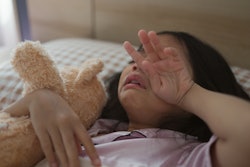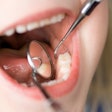Childhood stress may affect oral health in ways like increased caries risk, emphasizing the need for dentists to address psychological factors. This study was recently published in the Journal of Dentistry.
Additionally, socioeconomic status may be linked to oral health-related quality of life (OHRQoL) among school-aged children, the authors wrote.
“Our findings indicate that children experiencing elevated stress levels are more likely to exhibit dental caries and report lower OHRQoL,” wrote the authors, led by Letícia Fernanda Moreira-Santos of the Federal University of Minas Gerais School of Dentistry in Brazil (J Dent, July 29, 2025, Vol. 162, 106009).
In the cross-sectional study, 473 children ages 8 to 10 were assessed for stress levels and oral health status using reports from parents or caregivers. OHRQoL was measured using the Brazilian Child Perceptions Questionnaire, which evaluates the effect of oral health issues on children's well-being, they wrote.
Stress was measured using the 35-item Child Stress Scale, which covers physical, psychological, and psychophysiological aspects, and categorized into five phases, including absent, alert, resistance, near exhaustion, or exhaustion. Socioeconomic status (SES) data were also collected, and untreated dental caries were evaluated using the decayed, missing, and filled teeth index.
Younger children (β = -0.161; p = 0.005), those from low SES families (β = -0.151; p = 0.005), and those with higher stress levels (β = 0.202; p < 0.001) had more decayed teeth. Also, high stress was directly linked to a negative impact on OHRQoL (β = 0.458; p < 0.001), they wrote.
An indirect association was found between stress and OHRQoL through dental caries, as children with more decayed teeth reported poorer OHRQoL (β = 0.106; p = 0.003). Furthermore, low SES was associated with worse OHRQoL both directly (β = -0.146; p = 0.002) and indirectly via increased dental caries.
The study, however, had limitations. Childhood stress and OHRQoL were measured through self-reports, which may have introduced bias, the authors added.
“Integrating psychological support into pediatric dental practice can improve overall patient outcomes, particularly for children with higher stress levels and those from lower socioeconomic backgrounds,” they wrote.




















